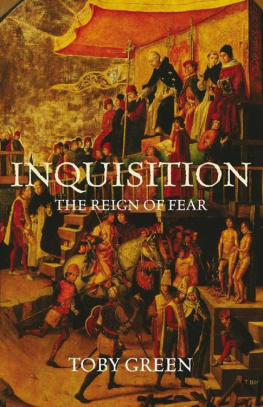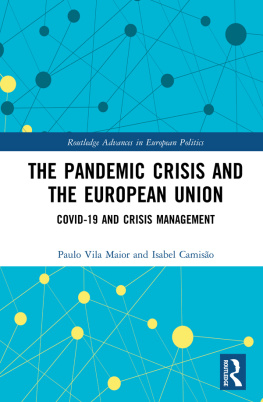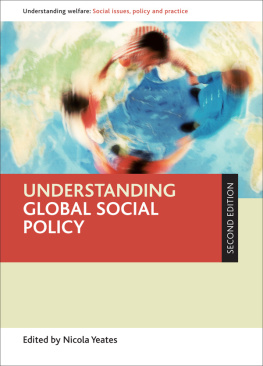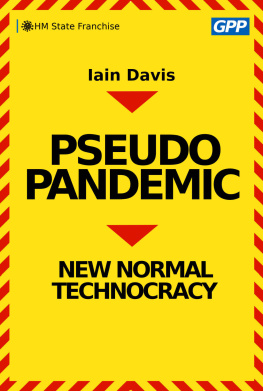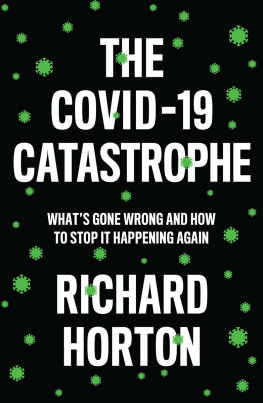Contents
Page List
Guide
A thoughtful analysis of the forces and attitudes that unleashed lockdowns upon the global poor, with harrowing descriptions of the consequences.
Sunetra Gupta, Professor of Theoretical Epidemiology, University of Oxford, and co-author of the Great Barrington Declaration
An excellent book at a critical time. Pandemics breed hysteria, to which the only cure is reason. This book is a masterly dose of reason, challenging, questioning and sceptical in the best sense of the word.
Simon Jenkins, author and columnist
Even in the face of viruses and death, some humans are still more equal than others. This book demonstrates it abundantly while challenging conventional wisdom on the pandemic and how to confront it.
Gilbert Achcar, Professor of Development Studies and International Relations, SOAS University of London
In a grave pandemic, what is the acceptable level of mortality risk relative to the damage to society, economy and poor countries from lockdowns? Toby Greens searching scrutiny and anguished analysis of this dilemma is a much-needed corrective to simplistic slogans.
Ramesh Thakur, former Assistant Secretary-General of the United Nations
An intellectual treat for critical thinkers who are watching the sunset of reason and feel that all that is essential is invisible to the eyes of many. This book sheds light on reason and makes the invisible visible.
Yossi Nehushtan, Professor of Law and Philosophy, Keele University
Toby Green brilliantly picks apart the underlying incongruities which allowed Covid-19 to upend democratic, scientific and international norms. From the loss of thousand-year-old traditions to the effective re-colonisation of sub-Saharan Africa, these changes should concern us all.
David Bell, independent consultant, and former medical officer, World Health Organization
An admirably measured description of 2020s immeasurable destruction, charting the shocking fallout from governments virus-suppression policies in the Global North and South. *The Covid Consensus* should be read by everyone who still believes that lockdowns save lives.
Sinead Murphy, Lecturer in Philosophy, Newcastle University
THE COVID CONSENSUS
TOBY GREEN
The Covid Consensus
The New Politics of Global Inequality
HURST & COMPANY, LONDON
First published in the United Kingdom in 2021 by
C. Hurst & Co. (Publishers) Ltd.,
83 Torbay Road, London NW6 7DT
Toby Green, 2021
All rights reserved.
Printed in Scotland
Distributed in the United States, Canada and Latin America by Oxford University Press, 198 Madison Avenue, New York, NY 10016, United States of America.
The right of Toby Green to be identified as the author of this publication is asserted by him in accordance with the Copyright, Designs and Patents Act, 1988.
A Cataloguing-in-Publication data record for this book is available from the British Library.
ISBN: 9781787385221
This book is printed using paper from registered sustainable and managed sources.
www.hurstpublishers.com
This book is dedicated with love to my parents and my sister, who taught me to ask questions
CONTENTS
FOREWORD
As a historian, I am not qualified to talk about virology, immunology, and the validity of experiments which have been done to prove/disprove various matters from mask-wearing to how much asymptomatic people can spread Covid-19. In this book, I do not enter into these matters. Instead, I am used to analysing the workings of power in human societies.
I am not a scientist, but I am trained in the interconnections of economies and societies. I have learnt to read official documents and compare stated policies to behaviourand to recognise potential explanations where the two do not cohere. As an economic historian in recent years, I have developed skills in comparative data analysis which help in examining statistics of infections and mortality rates. Beyond this, many years of work in Africa and with African colleagues have given me privileged access to material and information that have not been widely available in the public domain, certainly in the West. Such skills from the social sciences are not irrelevant to the discussions on Covid-19. Although they have often been sidelined in the major policy decisions over the last year, they are crucial.
Some readers will want to know about the evidence base which I have used. In terms of Western responses to Covid-19, the material in this book is slanted towards the United Kingdom with comparative material from the United States and the rest of Europe where I have found it possible to locate these given the time constraints. For the Global South, my professional background means that there is more data from the African continent than elsewhere, but again I have tried to bring in comparative points where I can. All data on death rates is accurate as of the end of 3 February 2021 when this book went to press, by which time the general trajectory of the second wave was apparent and the vaccination programme in the UK was well underway.
I have not written this book as a Covid sceptic. I know that Covid-19 is a virus that can have devastating effects among a small proportion of those who become symptomatic. It is my view that it is one of many such diseases in the world, and that the risks posed by it have been overstated when they are compared with the risks that were also involved in paralysing society for a year. Not everyone will share this perspective. Many of my friends and family will not. But sometimes the difficult conversations are the ones that we have to have.
Some readers will feel that the high mortality of the European second wave is proof of the risks posed by the virus and the necessity of lockdowns. But there is a different perspective on this, which is that the high levels of mortality in spite of the severity of the restrictions reveal that the lockdowns did not achieve the extent of the beneficial impact that their advocates promised.
Whatever beliefs readers may have as to the virulence of Covid-19, the evidence in this book shows that the mitigation strategies taken to combat it were catastrophic. They massively accelerated existing inequities within Western societies and between the West and the rest of the world. These are consequences which have never before been part of any progressive agenda, nor of any conservative agenda to level up. When collated together, as I have attempted here, the impacts of such mitigation strategies raise the question of whether such policies should be implemented in the future.
I really dont want to seem like I believe that I have all or even most of the answers. But as the vaccines are rolled out and 2020 recedes a little, and when such significant issues are at stake, we have the right to ask questions and to begin to debate without being dismissed as a crank or conspiracy theorist. I certainly havent written this book in the fantasy that everyone (or even anyone) will agree with all aspects of it, but rather in the hope that it can be part of a debate that we have an urgent duty to begin.
In my view, the aggregate impacts of the virus suppression strategies point unerringly towards the conclusion that in future cases of the emergence of a new virus, governments and global institutions should assess not only the risk factors of the virus but also the excess harms which radical suppression policies are shown in this book to have caused. In the case of Covid-19, however, this balance of viral and non-viral impacts was never a major part of the policy equation; in the effort to help everyone to mitigate risks and stay safe a risk-filled approach to the overall health of human societies emerged, and not for the first time in history what was portrayed with great fervour to the public as the moral response to a crisis had consequences that many would consider immoral.

